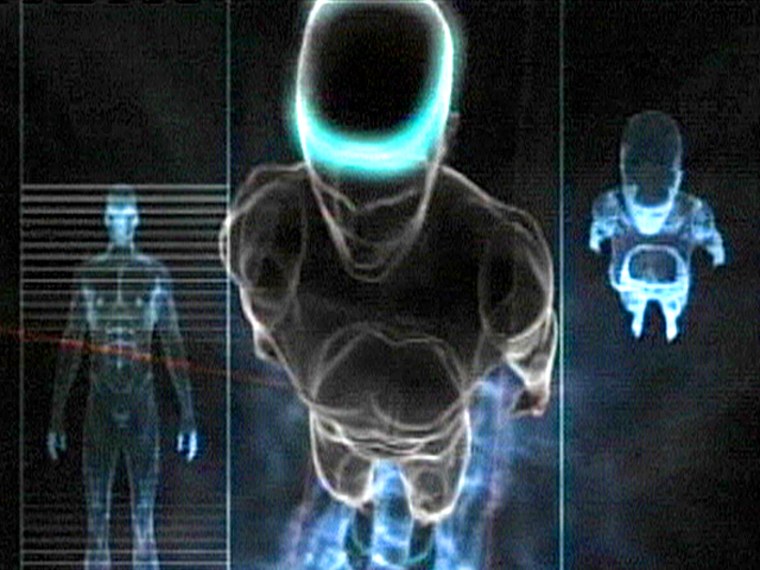Bad news, "Star Trek" fans: Even if you found a way to teleport a human being, sending the required data would take longer than the age of the universe. At least that's what fourth-year physics students from the University of Leicester concluded in the latest of a series of studies on way-out topics.
Teleportation transmission rates get the technical treatment in the Journal of Physics Special Topics, an online publication created by the British university to answer burning questions on the fringes of science, such as: Could Batman really use a cape to fly? What would Han Solo see when he made the jump to hyperspace?
"A lot of the papers published in the journal are on subjects that are amusing, topical or a bit off-the-wall. ... But to be a research physicist — in industry or academia — you need to show some imagination, to think outside the box, and this is certainly something that the module allows our students to practice," University of Leicester physicist Mervyn Roy said in a news release.
The teleportation question is certainly outside the box: Researchers James Nelms, Declan Roberts, Suzanne Thomas and David Starkey started out by calculating how much data it would take to represent a human being. They went with 10 billion bits, the amount of data encoded by DNA base pairs in the human genome.
Then they calculated how much information would have to be fed into the human brain to restore the traveler's pre-teleportation mental state. That inflated the total to a truly astronomical number: 2.6 tredicillion bits, or 2.6 x 10^42 in scientific notation.
The time required to transmit that data depends on how much bandwidth you have. If you're using the 30 GHz microwave band that's standard for satellite communications, it'd take 4.85 quadrillion years (4.85 x 10^15 years). That's about 350,000 times longer than the universe's current estimated age of 13.8 billion years.
You could boost the bandwidth, but then you'd need more power to get an acceptable signal-to-noise ratio. (Glitchy data would definitely be a bad thing if you're transmitting the information to rebuild humans and their brains.) And at a certain point, the power requirements for higher bandwidth hit a theoretical limit.
"Our results indicate the time scales to complete a full teleport of an individual are a little too lengthy at this time," Starkey said. "Current means of travel remain more feasible."
That's basically what a researcher concluded back in 2004, in a $25,000 study that was funded by the U.S. Air Force. The British students worked much cheaper.
A few additional twists went unconsidered by Starkey and his colleagues. For example, even if you transmitted the full DNA code for a human, you'd still have to turn that into a person who's big enough to fill a Starfleet uniform. That person would actually be a clone of the traveler, reprogrammed to think exactly like the person who was teleported. Going through such a process would take years — but what's a few decades when you're talking about quadrillions of years of transmission time?
You could also argue that quantum physics will someday point the way to breakthroughs that eliminate the need for bit-by-bit transmission and reconstruction. But if we're assuming that "Star Trek" technology has made the jump from fiction to fact, there would be far easier ways to get people back and forth: You could just open up a wormhole and walk through, or step on a spaceship and fire up the warp drive.
What do you think? Should "Star Trek" screenwriters get rid of the transporter room and pull Spock through a wormhole instead? Rev up your imagination to warp speed, and feel free to speculate in a comment below.
More about 'Star Trek' tech:
- 'Beam me up, General': Air Force finances teleport study
- Distance record set for quantum teleportation
- Warp speed, Scotty? It may actually be possible
- Gallery: Reality check for 'Star Trek' tech
Alan Boyle is NBCNews.com's science editor. Connect with the Cosmic Log community by "liking" the NBC News Science Facebook page, following @b0yle on Twitter and adding +Alan Boyle to your Google+ circles. To keep up with NBCNews.com's stories about science and space, sign up for the Tech & Science newsletter, delivered to your email in-box every weekday. You can also check out "The Case for Pluto," my book about the controversial dwarf planet and the search for new worlds.
